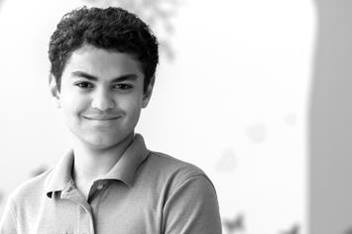Neuropsychology Track
The Neuropsychology Track is dedicated to providing broad based training consistent with standards through the American Psychological Association (APA) Commission on Accreditation (CoA), as well as adhering to Houston Conference Guidelines. This track provides a Major Area of Study in neuropsychology, with over 50% of training in clinical neuropsychology and didactic experiences consistent with the Houston Conference Guidelines for knowledge and skill. A primary goal is to prepare students for later careers, leadership, and board certification in Clinical Neuropsychology.
The Neuropsychology intern participates in neuropsychological assessment, inpatient and medical clinic consultation, and intervention throughout the course of their training year. The Neuropsychology intern focuses the majority of their clinical activities on children, adolescents, and young adults with a history of neurological or medical conditions impacting brain function. The Neuropsychology intern spends approximately 60% of their time in assessment activities. In addition to yearlong outpatient assessments, the intern is involved in two 6-month specialty experiences (TBI/rehabilitation and epilepsy), two corresponding 6-month clinic rotations, yearlong therapy, as well as didactics. These experiences are described in more detail below.
Yearlong Outpatient Assessment
The Neuropsychology intern gains exposure to children with various medical, neurological, psychiatric, and developmental disorders. The Neuropsychology Program at Nationwide Children's Hospital receives over 1,000 referrals annually, largely from internal medical providers. Referrals are received from a variety of hospital services, including the Sections of Neurology, Neurosurgery, Physical Medicine and Rehabilitation, Hematology/Oncology, Genetics, Cardiology, Developmental-Behavioral Pediatrics, as well as many outpatient clinics (e.g., Myelomeningocele, Craniofacial, Cerebral Palsy Clinics, etc.) and community physicians.
Interns see a wide range of cases over the course of the training year, but they typically see a higher volume of certain patient populations including epilepsy, concussion, 22q deletion syndrome, as well as craniofacial and cardiac conditions. Interns also often see children and adolescents with a history of traumatic brain injury, brain tumor, acute lymphocytic leukemia (ALL), sickle cell disease, encephalitis/meningitis, myelomeningocele, prematurity/low birth weight, prenatal substance exposure, and cerebral palsy.
The Neuropsychology intern participates in outpatient evaluations throughout their year, broken into two 6-month rotations with different outpatient assessment supervisors. The intern completes one full-day outpatient neuropsychological evaluation per week and up to two half-day outpatient neuropsychological evaluations per month. These assessments include a neuropsychological test battery appropriate for the child’s age and presenting concerns. Half-day evaluations may involve brief, targeted evaluations or they may be preschool cases. Preschool referrals typically include children ages 3 to 5 years old, but infants and toddlers can also be referred for these brief evaluations.
6-Month Rotation with Focused TBI/Rehabilitation Experience
The Neuropsychology intern completes one 6-month rotation with specific experiences in traumatic brain injury (TBI) and rehabilitation. Interns have the opportunity to work with patients on the Inpatient Rehabilitation Unit, as well as other inpatient medical units at Nationwide Children's Hospital. Neuropsychology experience on the Rehabilitation Unit may include serial cognitive assessment from admission to discharge, psychoeducation with patients and families, or brief neuropsychological testing prior to discharge. Interns may also have the opportunity to participate in interdisciplinary team and school re-entry meetings. Following initial consultation, the intern may see the rehab patient for a post-discharge outpatient assessment. Typical patient populations include traumatic brain injury (TBI), anoxic brain injury, stroke, brain tumor, encephalitis, and epilepsy surgery, but may also include other forms of injuries and illnesses.
Inpatient neuropsychology consults are also received from services other than the Rehabilitation Unit. Consults usually come from Neurology, Neurosurgery, Cardiology and Hematology/Oncology, but can be received from any hospital service. Consults may include pre-/post-treatment evaluations on the Hematology/Oncology unit; brief assessment of acute cognitive changes; intellectual function; capacity to live independently, make medical decisions, or adhere to medical recommendations; or facilitating an outpatient evaluation post-discharge (which can be part of the Neuropsychology intern’s outpatient assessment caseload). Interns will also have the opportunity to be involved in assessing and providing recommendations for patients in Disorders of Consciousness following very severe brain injuries.
During this 6-month rotation, the Neuropsychology intern also attends the Concussion Clinic. The Concussion Clinic is an interdisciplinary clinic that includes physical medicine and rehabilitation physicians, as well as neuropsychologists. In Concussion Clinic, interns complete brief neuropsychological screening to assess cognitive status following concussion. They may also provide brief interventions and psychoeducation regarding the course of recovery following concussion.
6-Month Rotation with Focused Epilepsy Experience
The Neuropsychology intern completes one 6-month rotation with specific experiences in epilepsy. The intern is involved in completing pre- and post-epilepsy surgery neurodevelopmental and neuropsychological evaluations. The Neuropsychology intern will present findings and recommendations to the Epilepsy Surgery Team during the weekly Epilepsy Surgery Conference.
During this 6-month rotation, the Neuropsychology intern also attends the Epilepsy Clinic. Epilepsy Clinic is an interdisciplinary clinic that includes epileptologists, nurse practitioners, a psychologist with expertise in autism, intellectual, and developmental disabilities, social workers, and a representative from the Epilepsy Alliance. A mental health screening tool, review of the medical record, and consultation with clinic providers may be used to identify cases where Psychology consultation may be indicated. Interns may be involved in assessing the child’s need for additional resources and services (e.g., neuropsychological evaluation, behavioral health or special education services, school advocacy, etc.), but may also provide brief assessments or interventions.
Outpatient Intervention
The Neuropsychology intern usually carries 4 to 6 outpatient treatment cases throughout the year. Cases are supervised by Drs. Kristen Trott, Kelly McNally, and Cathy Butz. Dr. Trott supervises 2 to 3 therapy cases referred from the Section of Neurology (e.g., epilepsy, encephalitis, etc.). Under the supervision of Dr. McNally, the intern will provide neuropsychologically-informed intervention services through the Teen Online Problem Solving (TOPS) program. This is an evidence-based online intervention for adolescents with a history of traumatic brain injury and other neurological conditions (e.g., epilepsy). The TOPS program provides information about the effects of childhood brain conditions and training in problem-solving and communication skills to help families cope more effectively. Interns will carry 1 to 3 TOPS cases at a time. The intern also carries 1 to 2 Biofeedback treatment cases supervised by Dr. Butz. Cases involve children and adolescents presenting with headache or abdominal pain or other physical symptoms exacerbated by anxiety or stress.
Individual Supervision
Individual supervision for outpatient neuropsychological assessment cases is provided on a rotation basis. Typically interns work with 2 assessment supervisors during each rotation. This includes their outpatient assessment supervisor and either their TBI/rehabilitation supervisor or epilepsy supervisor. Treatment cases with Dr. Kristen Trott are also supervised on an individual basis.
Group Supervision
The Neuropsychology intern, fellows, and faculty participate in a bi-monthly group case conference supervision meeting. This provides an opportunity to discuss specific cases, as well as practical and professional issues. Biofeedback, concussion, and inpatient rehabilitation cases are also supervised in a group format with Drs. Cathy Butz, Kelly McNally, and Christine Koterba, respectively.
Research
Depending on dissertation status, the Neuropsychology intern may be able to collaborate on research or quality improvement projects during their training year. Activities consist of collaboration with faculty on ongoing research programs. Opportunities exist to participate in externally and internally funded research and unfunded clinical research projects. The intern participates in research meeting every other month with faculty involved in research, as well as other neuropsychology trainees. This meeting involves discussion of research proposals, data analyses, manuscript preparation, and other issues related to ongoing departmental research projects.
Didactics
Didactic experiences in the Neuropsychology track are both formal and informal. The intern is expected to complete readings in clinical neuropsychology, especially as they pertain to pediatric populations and specific cases. Readings are chosen in consultation with clinical supervisors.
In addition to internship-wide formal didactic activities, the Neuropsychology intern participates in weekly Neuropsychology seminar. These seminars are designed to review a broad range of neuropsychological topics, current research, clinical and professional development, as well as ethical topics in neuropsychology. The Neuropsychology intern can also attend Clinical Services Hour where medical professionals throughout the hospital present on the etiology, treatment, and psychosocial impact of a wide range of pediatric health conditions (e.g., epilepsy, cancer, traumatic brain injury, cystic fibrosis, etc.).
The Neuropsychology intern also attends weekly Epilepsy Surgery Conference and bi-monthly Neuroradiology Rounds. Neuroradiology Rounds are led by a neuroradiologist and attended by Neurology physicians, nurse practitioners, and trainees, as well as Neuropsychology faculty and trainees. Clinical aspects and neuroradiology findings of cases are discussed.
Many additional educational opportunities exist including Medical Grand Rounds, Tumor Board, Clinical Research Seminars, Swartz Center Rounds, and more.
Professional Development
A large goal of the Neuropsychology Track is to provide support and mentoring to enhance professional development of future neuropsychologists. These activities occur both formally as part of supervision and didactics, but also informally. Neuropsychology trainees also are included in problem solving and discussions about practice issues and quality improvement such as clinical program development, improved access to care, increased efficiency of services, and business practices.
Hours
The Neuropsychology intern works five days per week. The Neuropsychology intern does not have on-call responsibilities.
Sample Weekly Schedule
|
Activity |
Hours |
|
Neuropsychology Evaluations or Inpatient Consult Services |
8-10 |
|
Outpatient Psychotherapy |
4-6 |
|
Hospital Clinics |
4-5 |
|
Individual/Group Supervision |
4-5 |
|
Didactic Seminars |
4-5 |
|
Report Writing, Clinical Notes, Phone Calls, etc. |
15 |
|
Hours Weekly |
40-50 |
Neuropsychology Track Training Faculty
Even though faculty are listed below in categories, it should be noted that all faculty take part in each intern’s training to different degrees, including clinical supervision, mentoring, and/or didactic training.
| Pediatric Neuropsychology | Research | Pediatric Psychology |
Successful Applicants
Many factors are considered when reviewing applications. Neuropsychological evaluation experience with children and intervention with children using behavioral or cognitive-behavioral approaches are required to be considered for the Neuropsychology Track. Candidates with intervention experience with only adolescents and/or adults will not be considered for interview. Applicants who have been invited to interview for the Neuropsychology Track typically are from doctoral programs which have a Major Area of Study or an Emphasis in Clinical Neuropsychology, according to the Taxonomy for Education and Training in Clinical Neuropsychology (Scott et al., 2017). Specifically, successful applicants have the following experiences:
- Completion of at least 1-2 formal courses in neuropsychology
- Research experience in neuropsychology
- Experience working in a medical or hospital setting
- Neuropsychological evaluation experience with pediatric medical populations
- Experience with pediatric psychology interventions focusing on coping, adjustment, and adherence in children or adolescents with acute or chronic medical conditions
- A minimum of 200-400 intervention hours (2022-2023 mean ~ 580)
- A minimum of 200-400 neuropsychological assessment hours (2022-2023 mean ~ 500)
- A minimum of 15-20 child integrated psychological evaluation reports (2022-2023 mean ~ 53)
Reference:
Scott, S., Cimino, C., Stricker, N., Heffelfinger, A., Gess, J., Osborn, K., & Roper, B. (2017). Taxonomy for education and training in clinical neuropsychology: Past, present, and future. The Clinical Neuropsychologist, 31:5, 817-828.



